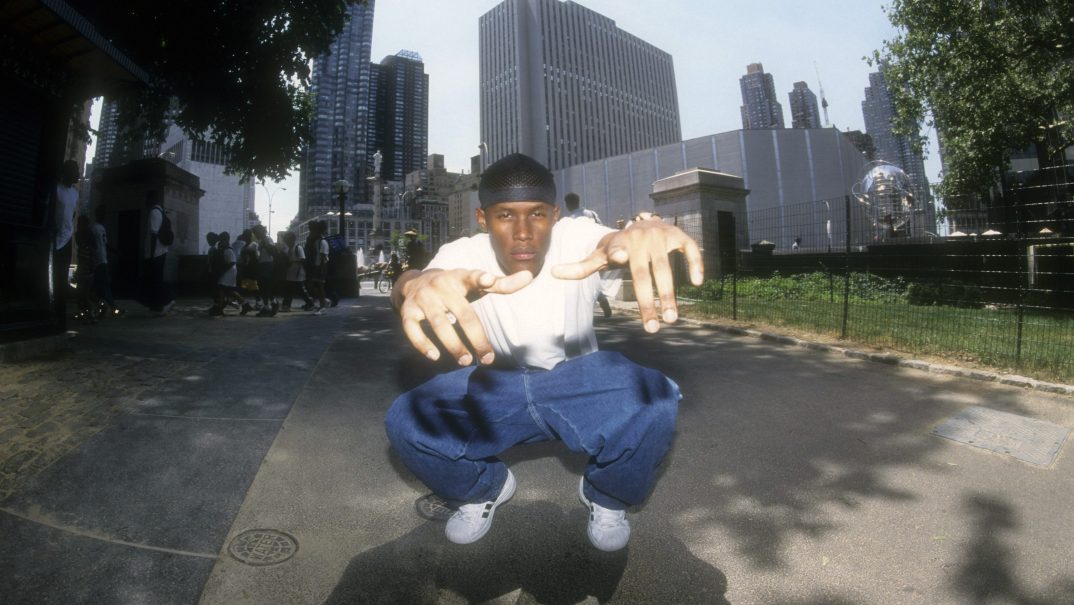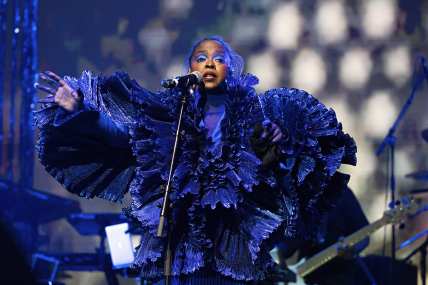25 years ago today, ‘Can-I-Bus’ changed the Canibus conversation
OPINION: On Sept. 8, 1998, the debut album from vaunted lyricist Canibus dropped and changed the conversation around the trajectory of the emcee.

Editor’s note: The following article is an op-ed, and the views expressed are the author’s own. Read more opinions on theGrio.
Let’s get the most important part of this discussion out of the way upfront: I, like nearly every hip-hop fan I know, wasn’t only a fan of Canibus, but was eagerly anticipating his album — “Can-I-Bus” — which was released 25 years ago, today, Sept. 8, 1998. For the record, I’m still a fan.
(Not for nothing, upon looking back at the hip-hop releases for September 1998, it was a monster of a month for the genre. In hip-hop circles, we often talk about Sept. 29, 1998, as arguably the greatest release day in hip-hop history, but the whole month had must-have albums.)
In 1998, I vividly remember the conversations we were having about Canibus. He was absolutely nasty on the microphone, and all of us were prepared for him to be the next big thing in hip-hop. We’d heard him on the Lost Boyz’s “Music Makes Me High” remix holding court with Kurupt and knew he was special. This was back in a time when industry buzz could really have you believing in an artist; you didn’t need a string of mixtapes — a good feature and some great press could have us all waiting on a project.
And then came the beef with LL Cool J. Canibus was featured on the extended cut of LL Cool J’s record, “4,3,2,1” off of his “Phenomenal” album. According to every story, Canibus’ original verse featured a line about borrowing the microphone that LL had tattooed on his arm. LL took it as a diss and had Canibus change his lines. In LL’s verse, though, he responded to the perceived slight and didn’t change HIS lines. In essence, LL Cool J has a whole verse letting Canibus know to simmer down. As you can imagine, a young, hungry rapper like Canibus didn’t take that lightly. Allegedly, LL suggested the two make a record together. That’s not what happened next.
No, what happened next was the TALK of early 1998. Canibus, with Wyclef Jean on production (more on this later), dropped the classic diss record, “Second Round K.O.” The record opens up with Mike Tyson (who also showed up in the video) telling Canibus to go for blood when folks talk trash about him. Then the beat drops and Canibus comes in on absolute fire. Listen, it’s hard to describe how much of a moment it was—you kind of had to be there—but it was all anybody could talk about.
Canibus dropped two lines, in particular, that stood out. On “4,3,2,1,” LL Cool J ended the song with “LL Cool J, greatest of all time!” Canibus pointed out in “Second Round K.O.” that “the greatest rapper of all time died on March 9,” a reference to the Notorious B.I.G., who was gunned down in Los Angeles a year earlier in 1997. Canibus also implied that nearly all of LL Cool J’s fanbase was women and that real MCs weren’t rocking with him anymore. Untrue, of course, but it was the kind of diss that landed.
As you can imagine, we were READY for a Canibus album. “Second Round K.O.” came out in March 1998, and it felt like all we could talk about and listen to at Morehouse College. As September 1998 approached, the streets were ready. In the Atlanta University Center, we had a store called Audrey’s (owned by a woman named Audrey, of course), and she would get albums early. Back then, albums always dropped on Tuesdays, so on Monday morning, I’d always head to Audrey’s to listen to the upcoming albums. I asked for Can-I-Bus, and, well, she had it. I put it in one of her portable CD players and began to listen — and, well, it wasn’t what I thought it would be.
Canibus was as sharp as ever lyrically, which was what we had come to expect from him. But the music didn’t quite…work. Wyclef and his team handled the lion’s share of the production, which ended up being the biggest complaint about the record, one that even Canibus would express on his next album, “2000 B.C.” The beats didn’t quite make for an album that reached the status we thought it should. For the record, Canibus — at this point — seems to only speak highly of Wyclef.
Wyclef, who produced The Fugees’ classic album “The Score” and his own debut masterpiece, “The Carnival” — Canibus featured on the remix to the hit single “Gone Till November”) — was one of the hottest producers out, handling production duties for a range of artists. Somehow, though, “Can-I-Bus” just didn’t feel like the production matched the tone and lyricism from Canibus. There are decent songs on the album, of course, but it just wasn’t quite what we all expected. I think, considering the monster albums Wyclef produced and what we’d come to expect from Canibus lyrically, we just knew there was a classic album on the way.
It’s amazing how quickly the tide can turn. The conversation around Canibus went from “the next big thing” to the one who couldn’t deliver the big one. We knew he could rap, and that has never been in question, but could he deliver an album? I remember the chatter being that he couldn’t. This is arguable, but I don’t think Canibus quite recovered from that initial falter. Sure, the album was a commercial success — it would eventually be certified platinum, a feat for any artist — but the conversation about Canibus as the next big artist who was a ferocious lyricist who could also deliver album-wide died down. We just didn’t expect that any longer and maybe that’s our fault. I’d argue Canibus wanted that spot, though, an artist who could crush the streets and the charts. At the time, Wyclef seemed like the producer who could make that happen.
As I said, I’m still a fan of Canibus — that will never change. Even listening to “Second Round K.O.” again got me hype for the potential. But “Can-I-Bus” was a let-down…it just was. And it changed the way we talked about Canibus. Perhaps the expectations were too high, or we wanted something different than we got. Whatever it was, “Can-I-Bus” changed the conversation around Canibus, and that convo is still the same one today: What could have been?

Panama Jackson is a columnist at theGrio. He writes very Black things and drinks very brown liquors, and is pretty fly for a light guy. His biggest accomplishment to date coincides with his Blackest accomplishment to date in that he received a phone call from Oprah Winfrey after she read one of his pieces (biggest), but he didn’t answer the phone because the caller ID said: “Unknown” (Blackest).
Make sure you check out the Dear Culture podcast every Thursday on theGrio’s Black Podcast Network, where I’ll be hosting some of the Blackest conversations known to humankind. You might not leave the convo with an afro, but you’ll definitely be looking for your Afro Sheen! Listen to Dear Culture on TheGrio’s app; download it here.


